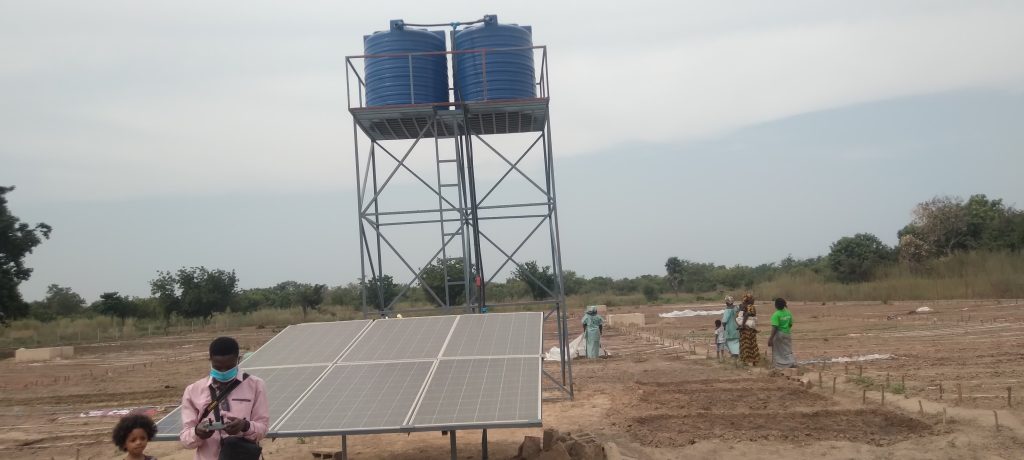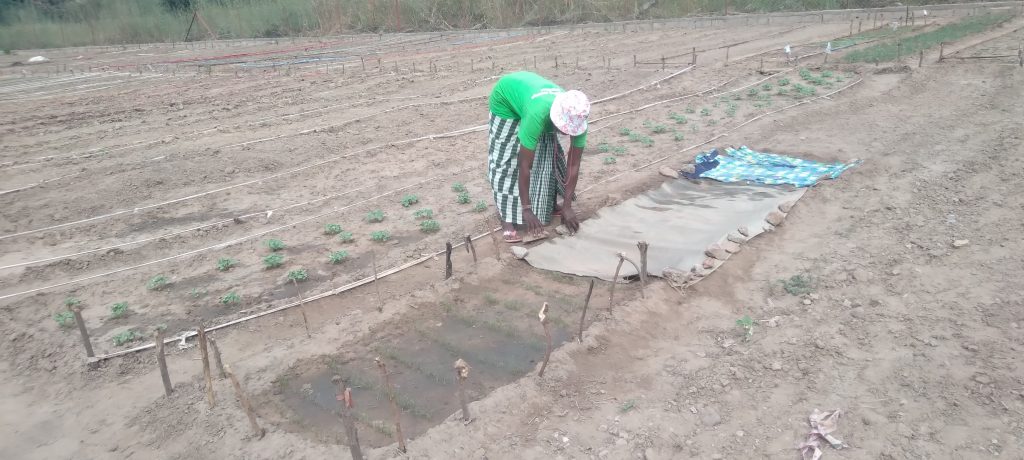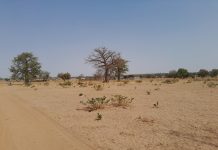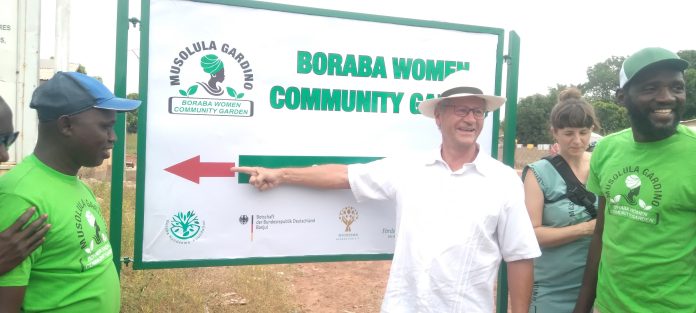By Kebba AF Touray, Reporting From Boraba, CRR North
The Ambassador of German to the Gambia, H.E Klaus Botzet, in collaboration with the community of Boraba, has inaugurated the community garden.
The total cost of the garden is in tune of 29,200 euros, and is aimed at among others, aims to enhance womem economic empowerment, promote and maximize the horticultural aspirations of the village.
The garden is jointly sponsored by German Embaasy in Gambia, Nyodema Foundation E V, RAPUNZEL Elne Welt Bio-Stiffung, One World Organic Foundation and other donors.
The event has also witnessed the presentation of garden tools such as rakes, garden forks, waterin canes, pick ask for ths use by women In ths women prpducers.
It further was marked with the visit to the beehives, situated around the garden, with the utlimate to take the entourage through the techniques, processes and benefits of honey and honey production.
Ansumana Danso, on behalf of the Alikalo, expressed gratitude to the Federal Republic of German, through its Gambian Ambassador, for supporting what he described as a life changing venture.
He also appealed to the Ambassador and other donors to help the producers with a storage facility, where they can store their produce and protect them from perish, decay and rotte.
Alhagie Sanuwo, on behalf of the VDC, said that the initiative commensorates well with the developmental objectives of the VDC of Boraba, sayin “It will provide employment and revenue for the producers”.

Sarjo Saidy, Women President, said the garden will not only help them in feeding their families, but is also a sorce of revenue, that they can use to pay tuition fees for their children.
She appealed “We urge on the donors to help us with the adequate water supply in the garden and to expand the garden so that it can accomodate more women, who want to come and join in horticultural production”.
Kunku Jamba and Sarata Jorbarteh, among other speakers, expressed similar remarks, and went on to call on the community to maintain the unity in the village, with which they can develop their village with ease, testament of which is the garden, which they noted, was successful through their unity.
Sarja Manga, Deputy Regional Director, Regional Agriculture Director, Sapu, recounted that in the past, cereal production, has dominated agricultural production, in the past, and is a welcoming development seeing vegetable production gaining momentum, as is is rapidly changing the production narratives.
He said this is made possible through the collaboration and establishment of schemes, with NGOs, private sectors, donors and individuals.
He said “Vegetables are very essential in our daily body diets and plays a very fundamental role in overall health and wellbeing”.
He assured the villagers that he is ready to work with them, in addressing their problem of storage facility, where the producers can store their produce.
Bente Stachowske, explained that over the past year, they have worked hard to build the necessary infrastructure: a solid fence, a garden shed, a toilet and a borehole. We planted 100 trees, set up 20 beehives and held several workshops on beekeeping and organic farming.
She continued that a year ago, this piece of land was empty just an open space. Today, we stand here together in a place of growth, unity and empowerment.
“Together we have created a community garden, a place that now means economic independence, food security and food sovereignty for the women of Boraba and the community as a whole. It has become a flourishing place, not only with vegetables but also with fruit trees and beekeeping,” she said.
She also expressed thanks and appreciations to all those who have supported in what in her view is a worthwhile venture.

H.E Klaus Botzet, the German Ambassador expresses their pride for being part of the life changing venture, and wished the community good luck and harvest, promising that he will visit the village, to assess what their level of production, as well as the impact of the garden on the community.



















